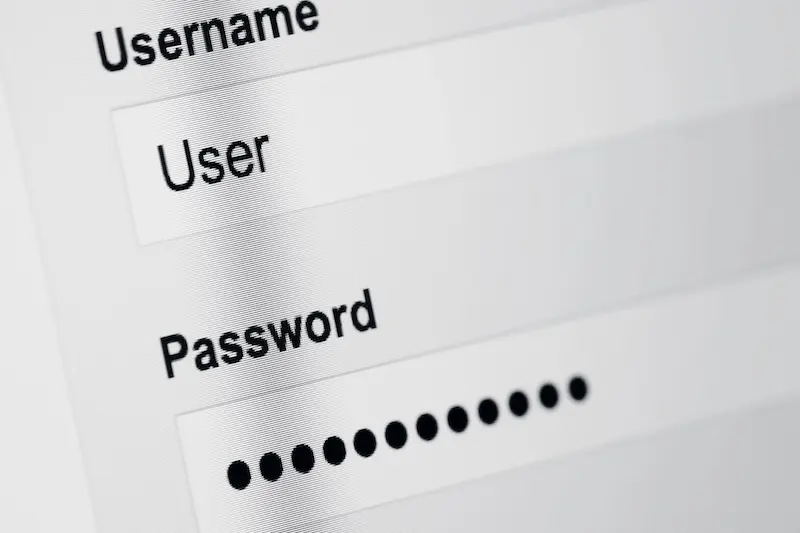In 2025, many people in Ireland hold digital possessions as well as physical ones, but may be unsure about how to make a will for digital assets.
From social media and cloud storage to online banking and cryptocurrency, digital belongings have become part of everyday life. Yet, they are often overlooked when it comes to estate planning.
This area of estate planning is certainly covering new territory; however, there’s also a sense that the legislation here in Ireland needs to be updated to reflect the evolving relationship that we have with the digital world. For example, the UK government is currently in the process of passing the Property (Digital Assets) Bill, which will give digital assets a clearer legal status when it comes to estate planning.
Here on home turf, understanding how to make a will for digital assets is the first step for anyone in Ireland who wants to ensure that their online accounts and digital property are properly managed after death.
In this article, we explore what digital assets are, why they matter, and how they can be included in a will.
What are digital assets?
The term ‘digital assets’ may be baffling to some, particularly those who find technology and the digital world in general somewhat overwhelming, so let’s start with the basics. Digital assets can be broadly divided into three categories:
- Assets with financial value – such as online bank accounts, PayPal, cryptocurrencies, or online trading accounts.
- Assets with social value – including Facebook, Instagram, LinkedIn, and other social media platforms.
- Assets with sentimental value – like photographs stored on Google Drive, Dropbox, iCloud, or creative content on YouTube or Spotify.
Each of these assets carries different considerations when planning a digital legacy. Some can be inherited, while others may be tied to licensing agreements that limit what can be passed on.
So, when thinking about digital assets, many people immediately think of cryptocurrency and would assume that they do not hold any of these types of assets. However, given that Ireland is home to 4.11 million social media accounts, which equate to 77.8% of the population, the reality is that the majority of us hold digital assets in some shape or form.
Why is it important to make a will for digital assets?
Whether it’s a social media presence or an online trading account, leaving digital assets unaccounted for can create confusion, delays, and even disputes for family members. In some cases, valuable financial accounts may remain undiscovered or locked indefinitely.
Social media profiles left unmanaged can also cause distress, and more worryingly, these profiles are at risk of being hacked. Taking a look at the stats around cybersecurity, the security of 138,000 social media profiles in Ireland was breached in the first half of 2025 alone.
Just from a sentimental perspective, irreplaceable memories in the form of family photos and videos held in the cloud or on a Google Drive could be lost forever if you haven’t allowed access to anyone in the event of your passing.
By making a will that clearly addresses digital assets, you can:
- Ensure beneficiaries can access online accounts with financial value.
- Provide instructions for closing or memorialising social media accounts.
- Safeguard sentimental items, such as photographs or videos, from being lost.
- Prevent fraud or unauthorised access to accounts after death.
If you’re looking to set out your will with your personal digital footprint in mind, read on.
Steps to take when making a will for digital assets
#1. Create a digital asset inventory
The first step is to prepare a directory of online accounts and digital property. This should include:
- Banking and payment platforms.
- Cryptocurrency wallets.
- Social media profiles.
- Cloud storage and subscription services.
Details such as usernames, account numbers, and a secure record of passwords can be stored safely with your solicitor or in a password manager such as 1Password or NordPass.
#2. Decide how you want assets managed
Once the inventory is complete, it is important to decide what should happen to each account. For example:
- Should a PayPal balance be transferred to a spouse or child?
- Should a Facebook account be closed or memorialised?
- Should photographs in a cloud account be saved to an external drive and shared with family?
Essentially, setting out your wishes for the future is just as important for your digital assets as your physical belongings. And communicating these wishes with your loved ones is key to avoiding upset and uncertainty for them down the line.
#3. Address legal limitations
Not all digital assets can be passed on in the same way as physical property. Many online services are governed by licence agreements. For example, a music library purchased through iTunes cannot usually be transferred to another person. In these situations, making copies or backups of important files may be the most practical approach.
#4. Name digital executors
Choosing a digital executor is a wise move, especially if you hold a wide range of digital assets. Preferably, a tech-savvy family member or friend who would be specifically responsible for handling all your digital accounts. You can outline this role in your will or address it separately through a letter of wishes.
#5. Update regularly
Our digital lives change just as quickly as our real-world ones. New accounts are created, passwords change, and platforms come and go. Keeping the digital asset inventory up to date ensures that the instructions in your will remain accurate and useful.
Practical considerations when making a will for digital assets
When setting out your will from a digital asset perspective, here are some points you should bear in mind:
- Security – Avoid writing passwords directly into a will, as it becomes a public document once probate is granted. Instead, store login details securely with your solicitor.
- Privacy – Be mindful of personal information contained in online accounts. For example, you may have private discussions between you and others on a social media platform. In such scenarios where the privacy or security of others may be compromised, it might be safer to delete these accounts rather than share access.
- Service provider policies – Many platforms, such as Google and Facebook, have their own legacy tools to manage accounts after death.
These should be reviewed and used where appropriate.
Common questions about digital assets in wills
Q: Can cryptocurrencies be inherited?
A: Yes, but only if your executor knows how to access the wallet. Clear instructions on recovery keys are essential.
Q: Do I own my digital music and film libraries?
A: In most cases, these are licensed rather than owned, meaning they cannot be legally transferred. Copies or backups may be the only practical solution.
Q: Can social media accounts be controlled after death?
A: Yes. Platforms allow accounts to be closed or memorialised, but this requires someone with the authority to act on your behalf. Including instructions in your will is the simplest way to ensure this happens.
Protecting your digital legacy with Summit Law
The idea of leaving behind a digital legacy is relatively new, but it is certainly becoming more relevant for families in Ireland today. By addressing online property in a will, you can offer your loved ones some peace of mind, thus avoiding additional distress or confusion at a difficult time.
At Summit Law, we have extensive experience in guiding clients through the will-making process, ensuring that both traditional and digital assets are properly accounted for. Our dedicated team can help you create a clear plan for your online accounts, safeguarding your financial, social, and sentimental legacy.
Contact us if you’re ready to make a will for your digital assets
If you are considering how to make a will for digital assets, now is the time to act. We can provide practical, tailored advice to ensure that your digital and physical assets are fully protected.
Contact us today to arrange a confidential consultation about our Will Writing Services.



